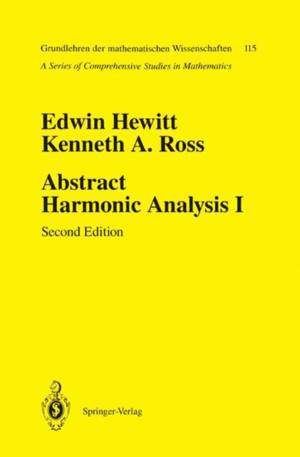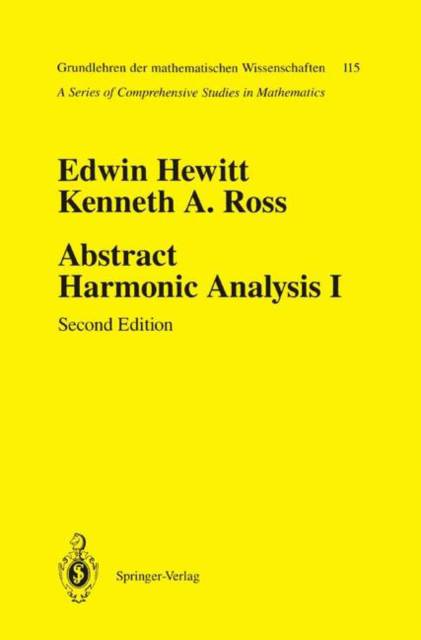
- Retrait gratuit dans votre magasin Club
- 7.000.000 titres dans notre catalogue
- Payer en toute sécurité
- Toujours un magasin près de chez vous
- Retrait gratuit dans votre magasin Club
- 7.000.0000 titres dans notre catalogue
- Payer en toute sécurité
- Toujours un magasin près de chez vous
Abstract Harmonic Analysis
Volume I: Structure of Topological Groups Integration Theory Group Representations
Edwin Hewitt, Kenneth A Ross
198,45 €
+ 396 points
Format
Description
When we acce pted th ekindinvitationof Prof. Dr. F. K. Scnxmrrto write a monographon abstract harmonic analysis for the Grundlehren. der Maihemaiischen Wissenscha/ten series, weintendedto writeall that wecouldfindoutaboutthesubjectin a textof about 600printedpages. We intended thatour book should be accessi ble tobeginners, and we hoped to makeit usefulto specialists as well. These aims proved to be mutually inconsistent. Hencethe presentvolume comprises onl y half of theprojectedwork. Itgives all ofthe structure oftopological groups neededfor harmonic analysisas it is known to u s; it treats integration on locallycompact groups in detail;it contains an introductionto the theory of group representati ons. In the second volume we will treat harmonicanalysisoncompactgroupsand locallycompactAbeliangroups, in considerable et d ail. Thebook is basedon courses given by E. HEWITT at the University of Washington and the University of Uppsala, althoughnaturallythe material of these courses has been en ormously expanded to meet the needsof a formal monograph. Like the. other treatments of harmonic analysisthathaveappeared since 1940, the book is a linealdescendant of A. WEIL'S fundamentaltreatise (WElL [4J)1. The debtof all workers in the field to WEIL'S work is wellknown and enormous. We havealso borrowed freely from LOOMIS'S treatmentof the subject (Lool\IIS[2 J), from NAIMARK [1J, and most especially from PONTRYA GIN [7]. In our exposition ofthestructur e of locally compact Abelian groups and of the PONTRYA GIN-VA N KAM PEN dualitytheorem, wehave beenstrongly influenced byPONTRYA GIN'S treatment. We hope to havejustified the writing of yet anothertreatiseon abstractharmonicanalysis by taking up recentwork, by writingoutthedetailsofeveryimportantconstruction andtheorem, andby including a largenumberof concrete ex amplesand factsnotavailablein other textbooks.
Spécifications
Parties prenantes
- Auteur(s) :
- Editeur:
Contenu
- Nombre de pages :
- 525
- Langue:
- Anglais
- Collection :
- Tome:
- n° 115
Caractéristiques
- EAN:
- 9780387941905
- Date de parution :
- 07-01-94
- Format:
- Livre broché
- Format numérique:
- Trade paperback (VS)
- Dimensions :
- 156 mm x 234 mm
- Poids :
- 748 g

Les avis
Nous publions uniquement les avis qui respectent les conditions requises. Consultez nos conditions pour les avis.






